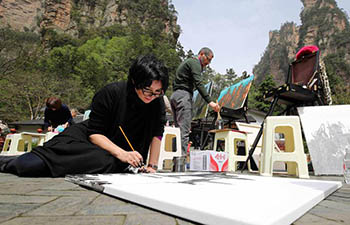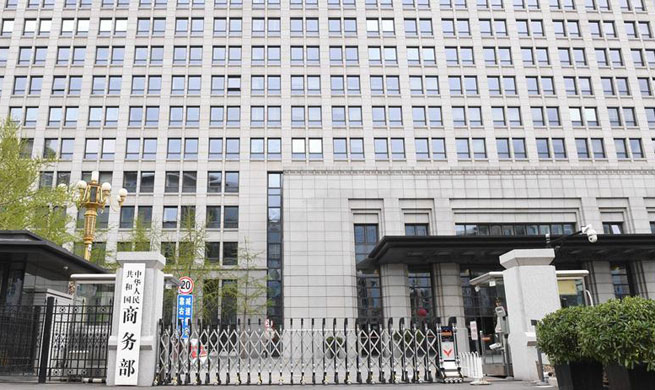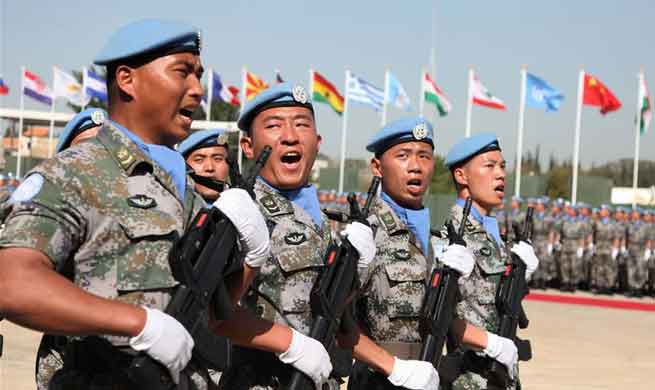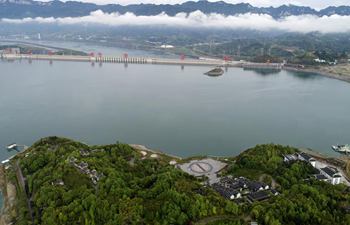DHAKA, April 7 (Xinhua) -- China's idea of a "common destiny" has the potential to transform the current volatility of global economy into a more stable and equitable economic order, through which developing countries can realize their full potential, said a leading Bangladeshi think-tank chief.
Farooq Sobhan, president of Bangladesh Enterprise Institute, has told Xinhua in an exclusive interview that it is a major Chinese foreign policy initiative that seeks to establish a win-win relationship among the countries in the region and beyond.
"I think the idea of a common destiny for a better Asia is important for the collective welfare and development of the region as a whole," said Sobhan, ahead of the Boao Forum for Asia Annual Conference, set to be held from April 8 to April 11 in China.
Sobhan who served in various capacities in the Bangladeshi government and foreign service also firmly believes that institutional initiatives such as the Asian Infrastructure Investment Bank (AIIB) and the Belt and Road Initiative can pave the way for greater economic cooperation, as well as promote innovation, and technological advancement across the world.
The Belt and Road Initiative is certainly a massive, unprecedented plan to improve connectivity across the Eurasian continent, he said, adding that this would require complex coordination, reforms and political decisions.
Sobhan, former chairman of Bangladesh's Board of Investment, said trade facilitation, joint-venture mega infrastructure projects, supported by the Belt and Road Initiative, can change the face of Asia and can help eliminate poverty from the region.
Trade facilitation can increase trade flows and ultimately lead to higher growth. Apart from providing trade, investment and technical cooperation, China can play a significant role in supporting both regional and sub-regional cooperation initiatives such as South Asian Association for Regional Cooperation (SAARC), the Bangladesh-China-India-Myanmar Forum for Regional Cooperation (BCIM) and the Bay of Bengal Initiative for Multi-Sectoral Technical and Economic Cooperation (BIMSTEC), he added.
"Asia is today the manufacturing hub of the world. It has become the economic powerhouse of the global economy. It is the region that has the fastest growing economies in the world both attracting and generating foreign direct investment in ever increasing amounts. Asia today is in the process of rapid transformation. Yet surprisingly Asia remains the least integrated region in the world," said the expert.
He said initiatives as the Belt and Road Initiative can allow trade to expand, which in turn can boost growth and sustainable development in countries like Bangladesh.
According to Sobhan, China has emerged as one of the world's largest exporters and has also become one of the world's largest import markets.
"China's policy of reform and opening-up has lifted many in China out of poverty over the past four decades. This has not only led to the remarkable socio-economic development and the welfare of the country as a whole, but has also proved beneficial to the global economy. China's rapid growth and development through reforms has had a profound impact on the global economy."
Moreover, he said China continues to attract record amounts of foreign investment. In turn, it is investing billions of dollars abroad.
"Another remarkable feature is China's policy of non-interference in the domestic affairs of other countries. It offers an alternative world order which stresses on the equal, inviolable sovereignty of all states large and small, Western and non-Western, rich and poor, each to run its own system as it sees fit. This has allowed China to gain confidence and trust of both the governments and the people in Africa, Asia and Latin America in particular."

















